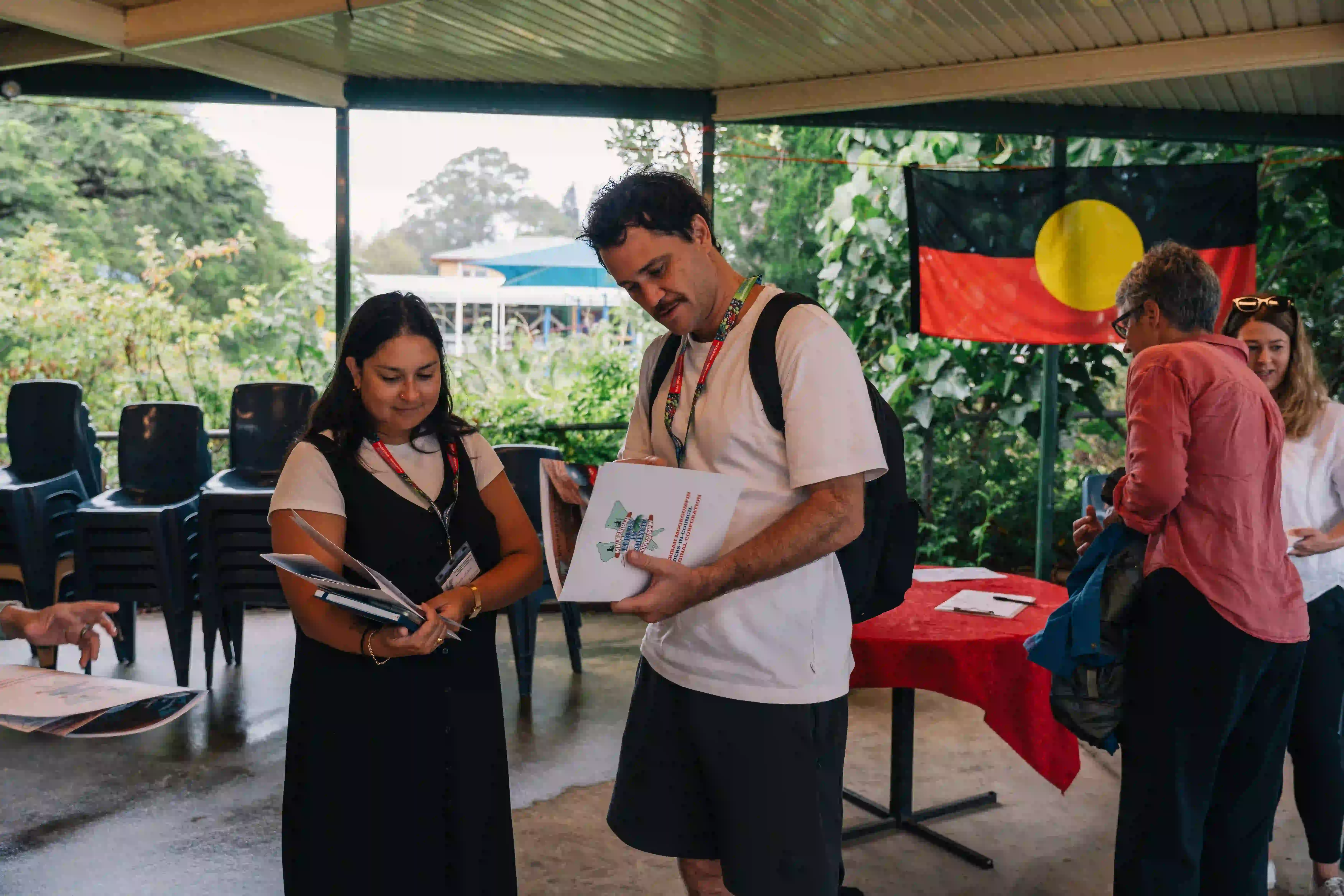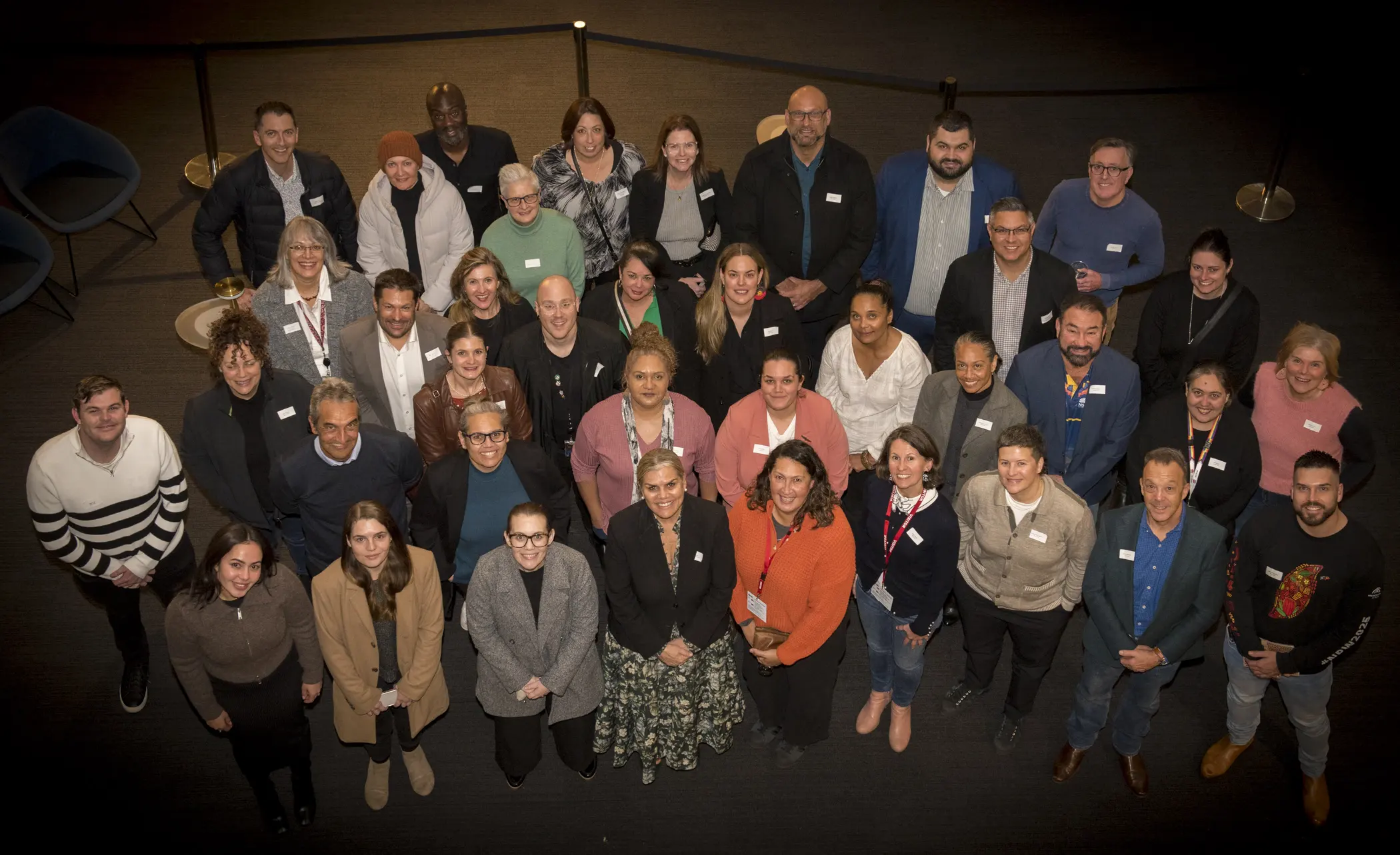Yolŋu woman Liandra Gaykamaŋu understands firsthand the challenges First Nations entrepreneurs face when operating a business from a remote community, including the lack of ability to grow social capital.
“Living in a small community in the middle of any Australian Remote Community,” she says, “it's not easy to go somewhere to bump into the right people. You can't access the people you need if they aren’t in your local area to catch up with. This barrier is only heightened when internet connectivity isn’t great so Zoom or video calling isn’t necessarily the answer either.”
Liandra is the Founder and Creative Director of Liandra Swim, an eco-conscious designer swimwear label, which she operated from Milingimbi in North-East Arnhem Land for 12 months before relocating to Darwin.
“I can’t count the number of opportunities I missed out on because I couldn't get samples somewhere in time for a photo shoot with key media, or because the energy and cost required to attend an industry opportunity or event was too high – not to mention it was a good two days travel each way to get there.”
Her passion for opening doors for other remote entrepreneurs led her to take the role of Board Director at Enterprise Learning Projects and more recently, to take up the role of Co-CEO, which she managed alongside her swimwear label. Her role with Enterprise Learning Projects (ELP) has now transitioned to Executive Director, as she stepped into her business full-time.
“ELP’s goal is to improve access to networks, resources and professional development in remote communities,” she says. “Those are the things that can play a role in empowering local leaders and entrepreneurs and encourage people to think bigger.
“We help them knock down that door.”
Enterprise Learning Projects delivers business incubation and mentoring programs for remote Indigenous entrepreneurs across the North of Australia; but with a current focus on the Northern Territory. Their programs are specifically tailored to the needs of each business. Its hybrid model sees the team working with entrepreneurs both on Country and through its Darwin office and is designed to be flexible to respond to the needs of the entrepreneurs.
“We take our time in the application and onboarding of new entrepreneurs to our programs,” Liandra says. “We make sure we’re the right fit for each other and that what the business needs is what we can deliver.
“We’re hypersensitive to the challenges of working in remote locations, where internet may not be stable, and where isolation can be exacerbated by seasonal weather.”
One of the businesses the Enterprise Learning Projects team worked with in it’s first round of the incubation program was Gapuwiyak Culture and Arts, a Yolŋu-owned remote art centre in East Arnhem Land that supports more than 100 artists from Gapuwiyak and the surrounding homelands. ELP supported them with a strategy for their next exciting phase of business and had a key focus on social media and digital communication strategies.
“The art centre is important so that we can put what we’ve learned,” says Yangipuy Wanambi, board member, Gapuwiyak Culture and Arts Aboriginal Corporation. “It’s a key place to learn Yolŋu stories and culture. Paintings show connection to everything.”
Liandra says she’s never come across a business at Enterprise Learning Projects that’s not creating social impact. As the movement for social enterprises builds in Australia, she recognises that creating social impact is inherent in the way Indigenous businesses operate.
“How decisions are made and who makes them is important, even when they’re not always financially viable. The needs might be cultural, and there is always a long-term focus and a community focus.”
Liandra sees many opportunities for enterprises in the Northern Territory across tourism, art and culture and bush products and says if we want to see social change we need to invest in and support local people to do what needs to be done.
“For such a long period of time we’ve had to rely on other economies to create opportunities for us. If we are investing skills and capital into First Nations businesses, investing with a First Nations lens, then we’re creating opportunities and solutions that are by First Nations people and for First Nations people.”
For the team at Enterprise Learning Projects, it’s not just about creating successful businesses. The real aim is to transfer skills and knowledge to the individuals and communities they work with.
“There are limited jobs and opportunities in remote communities,” says Liandra, “and too many positions that do exist are filled by people who are not in or from the community.”
She says half of what Enterprise Learning Projects does is to help communities revolutionise their own economy, and the other half is to upskill local people so that they can be competitive for the jobs that are available.
“We’re investing in individual professional development so that the entrepreneurs can step into other opportunities and leadership roles in the community if they want to. They are there for the long-term, they understand the issues on the ground and how to fix them so we should be investing in those people as a priority.”
For Liandra, reconciliation is about action.
“Helping to open a door, and supporting someone to take or create an opportunity, is going to do more change on the ground than just talking about what should happen. And you don’t need to be a First Nations person to do that.”
In February this year, PRF committed $1 million in funding to Enterprise Learning Projects to support self-employment and entrepreneurship in the Northern Territory. Liandra says the grant will help the organisation "to grow our presence, build out or programs and essentially do the work on the ground with local business leaders to create viable economic solutions that work.”





%20(2).webp)





